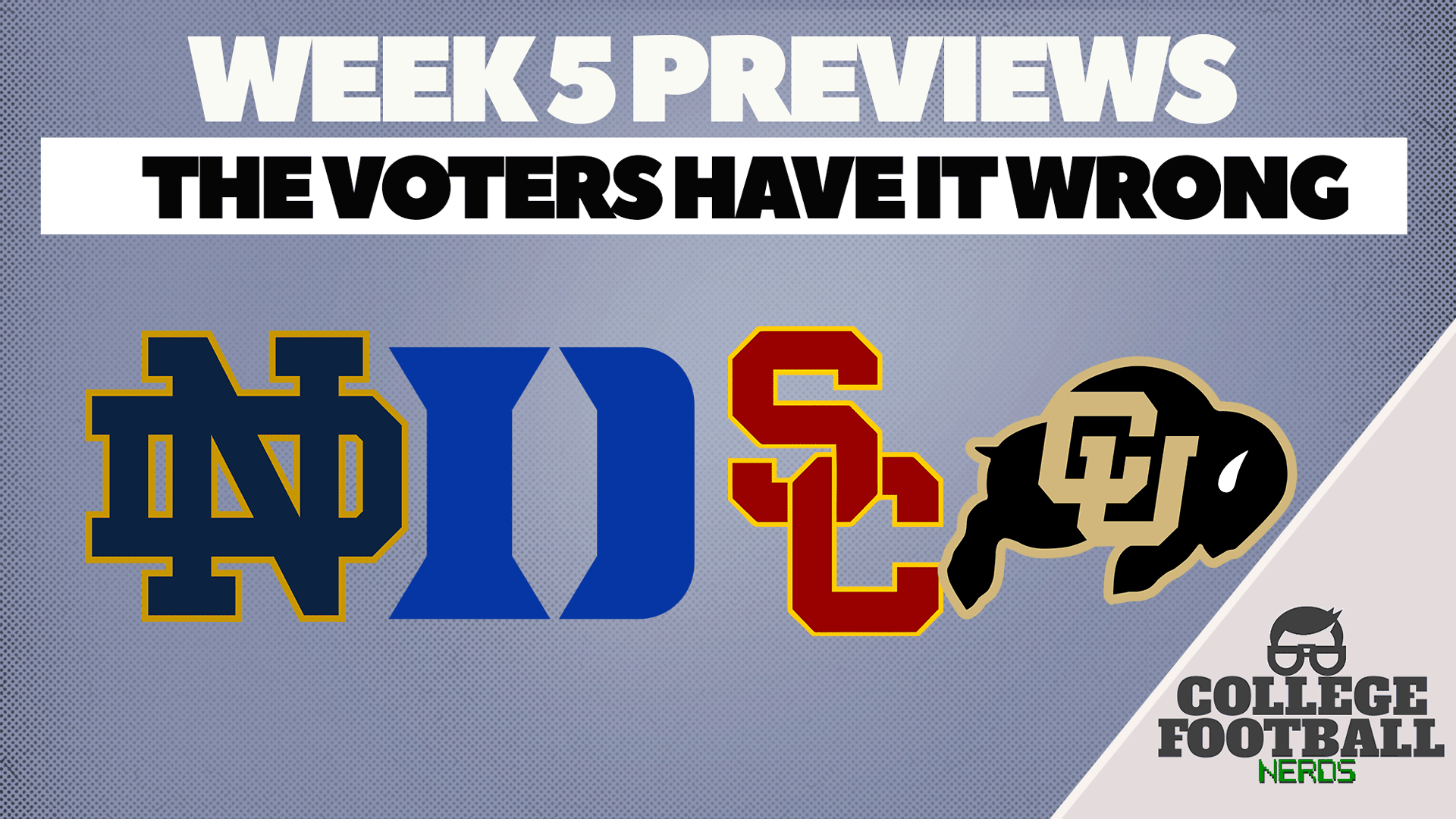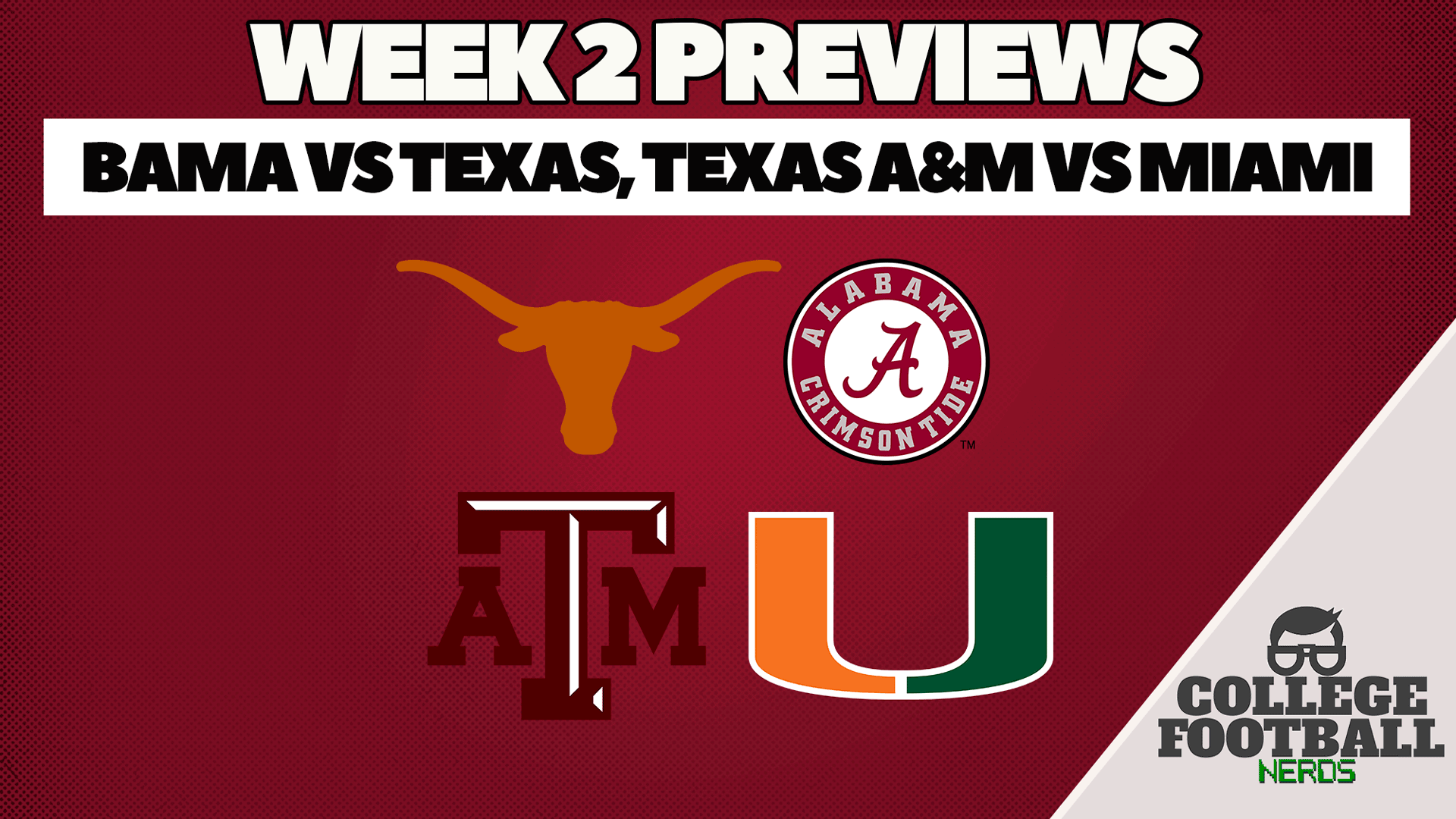The Numbers Behind How Playoff Expansion Creates Less Parity (And How To Fix It)
What if I told you that the BCS formula produced far more parity, far more opportunity for a Cinderella story, and far more overall engagement in college football than the playoffs? I've got numbers to prove it.

College Football Twitter is full of lines in the sand. One big one is playoff expansion. There are few undecided voters on the matter. However, opinions on both sides are often formed based on echo chamber talking points and are not rooted in reality.
The Numbers
Let's compare the final 9 seasons of the BCS to the first 9 seasons of the playoffs:
BCS Championship game:
- 10 unique teams
- 6 unique winners
- 5 repeat teams
- 1 team with 3+ appearances
College Football Playoff Championship Game:
- 7 unique teams
- 5 unique winners
- 4 repeat teams
- 3 teams with 3+ appearances
The last one is key. Alabama's dominance began at the tail end of the BCS era, and their multiple appearances are largely what led to the demands to expand the field to a 4 team playoff.
But has it made things better? I'd argue absolutely not.
In the playoff era, we're getting more of the same, not less. Clemson, Alabama, and Georgia have dominated the championship game appearances. Outside of Ohio State's 2014 win, there's only been one winner who wasn't Clemson, Alabama, or Georgia (2019 LSU).
Final 9 BCS National Championship Game Participants
| 2005 | Texas | USC |
| 2006 | Florida | Ohio State |
| 2007 | LSU | Ohio State |
| 2008 | Florida | Oklahoma |
| 2009 | Alabama | Texas |
| 2010 | Auburn | Oregon |
| 2011 | Alabama | LSU |
| 2012 | Alabama | Notre Dame |
| 2013 | Auburn | Florida State |
College Football Playoff Championship Game Participants
| 2014 | Ohio State | Oregon |
| 2015 | Alabama | Clemson |
| 2016 | Alabama | Clemson |
| 2017 | Alabama | Georgia |
| 2018 | Alabama | Clemson |
| 2019 | LSU | Clemson |
| 2020 | Alabama | Ohio State |
| 2021 | Alabama | Georgia |
| 2022 | Georgia | TCU |
How Playoff Expansion Makes It Worse
The supporters of the forthcoming 12-team playoff argue that parity is coming in the form of a broader and more inclusive field. Here's how that breaks down:
- 12 teams
- 5 power conference champions get auto-bids
- 4 first-round byes
- Highest ranked G5 team gets a spot
Expanding the field to 12 teams is a problem, but the bigger issue is the first-round byes. In recent years, it's been quite hard to argue that the PAC 12, Big 12, or ACC champion was better than the 2nd best team in the B1G or SEC. Compounding this is that conference realignment sees the P12 and Big 12 replacing their best brand names with former G5 teams.
This not only waters down the accomplishment of winning a "P5" championship in those conferences but also means the highest-ranked G5 may actually be mediocre.
'The only hope a Cinderella team has of actually winning the national championship is to minimize the number of elite teams they'd need to face in the postseason.
Expansion gives mulligans to the best and most talented teams who can sleepwalk through a tough regular season schedule and still play for a championship. These are the teams actually equipped to win 4 straight games against good P5 teams at the end of the season, not a 3-loss PAC 12 winner or #16 ranked Tulsa.
Playoff Expansion Creates More Blowouts Because of Seed Pairings
Instead of a #12 seed team playing a similarly matched team in a NY6 game, they now have to play a team who is artificially ranked 5th because of auto-bids, but may very well be the 2nd best team in the country.
The beauty of the BCS was in its elimination of teams based on regular season outcomes
The BCS eliminated a lot of these ultra-talented teams through small margins for error. And in cases like 2011, it got the two teams right. Alabama and LSU were dominant in a way no other teams were that year. Instead of accepting that, the broader college football world complained until they got their playoff, now dominated by the SEC and the B10 West.
The only hope a Cinderella team has of actually winning the national championship is to minimize the number of elite teams they'd need to face in the postseason. With each passing expansion, the cry is the field is being dominated by the SEC and that teams are being left out due to bias. But each expansion only serves to elevate the SEC unless teams can actually beat them.
Our Perfect Playoff Model
Conference realignment has somewhat killed our perfect model. But here's what we maintain would have been the best for the sport:
- 6 teams
- 1 and 2 get byes
- no auto bids
- opening rounds on high-seed campus
This allows for a highly ranked G5 to get in even if all P5 teams are undefeated, while not giving a bunch of 2 and 3-loss highly talented teams the chance to erase a mediocre regular season.
6 teams is also an equalizer for voters and a committee that sometimes struggles to calibrate for variations in strength of schedule.
One Area Playoff Expansion Improves College Football
Opt-outs. The opt-out situation would be dramatically improved, at least at the beginning, thanks to playoff expansion. The "championship or bust" mentality that's infected college football, and subsequently ruined many NY6 bowls, has led to an increasing number of opt-outs.
I believe that in the short term, players will be less likely to opt out of a playoff game than a NY6 game. The danger here is if early-round blowouts become standard. If this happens, we may see the same opt-out creep we saw in pre-expansion bowl season.


